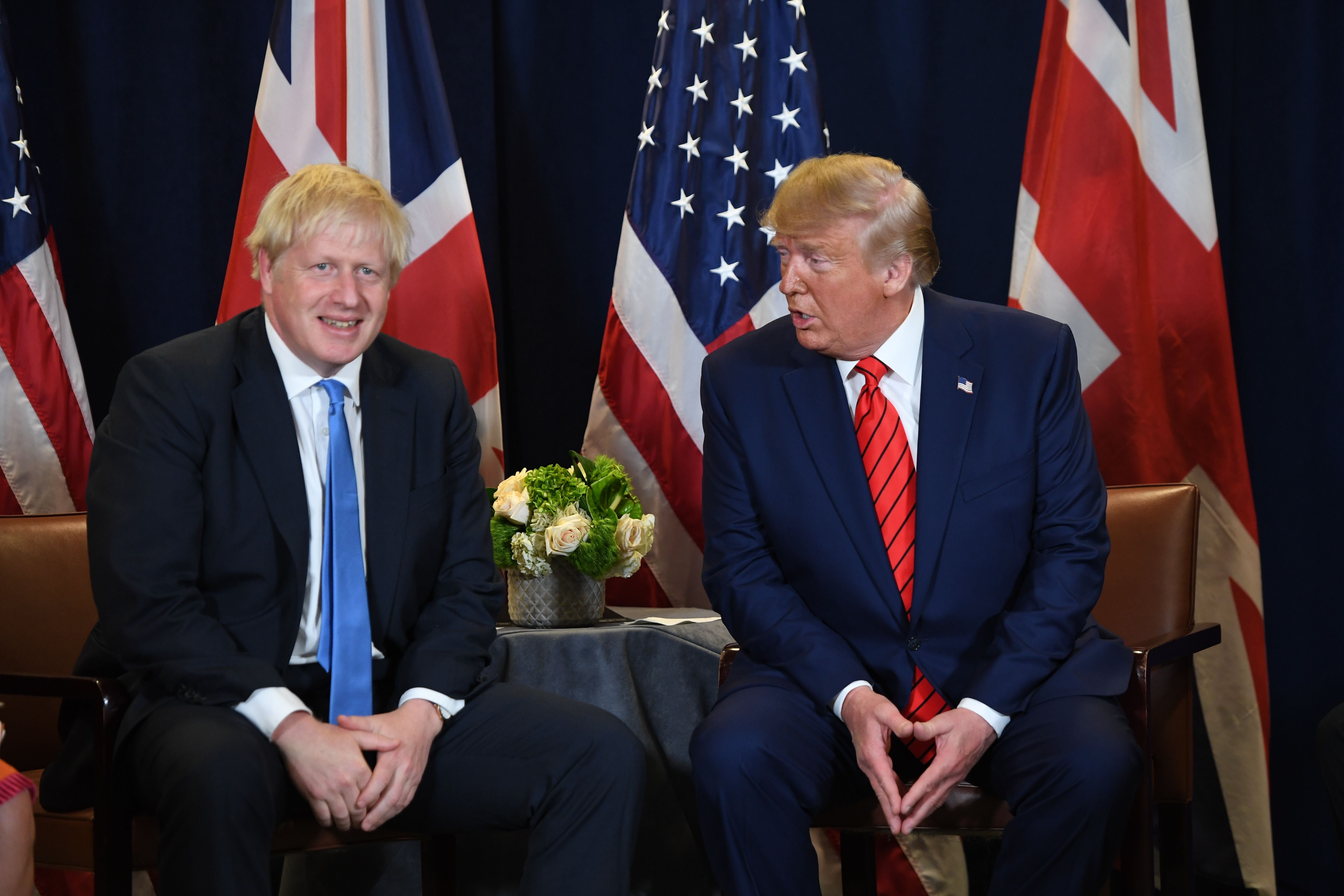Trump administration thought UK herd immunity strategy was ‘nuts’, book claims
Trump administration officials said to have thought British counterparts were ‘out of their minds’

Your support helps us to tell the story
From reproductive rights to climate change to Big Tech, The Independent is on the ground when the story is developing. Whether it's investigating the financials of Elon Musk's pro-Trump PAC or producing our latest documentary, 'The A Word', which shines a light on the American women fighting for reproductive rights, we know how important it is to parse out the facts from the messaging.
At such a critical moment in US history, we need reporters on the ground. Your donation allows us to keep sending journalists to speak to both sides of the story.
The Independent is trusted by Americans across the entire political spectrum. And unlike many other quality news outlets, we choose not to lock Americans out of our reporting and analysis with paywalls. We believe quality journalism should be available to everyone, paid for by those who can afford it.
Your support makes all the difference.US officials thought the British government were “out of their minds” for contemplating a herd immunity strategy when the coronavirus first emerged, a new book about the global response to the pandemic claims.
Officials in Donald Trump’s administration are said to have told their British counterparts that such a strategy would be “nuts” as the scale of the threat of the virus became clear.
“We thought they were out of their minds. We told them it would be an absolutely devastating approach to deal with the pandemic,” one US official told the book’s authors, Thomas Wright, a Senior Fellow at the Brookings Institution, and Colin Kahl, who is now under secretary of defence for policy in President Biden’s administration, in Aftershocks: Pandemic Politics and the End of the Old International Order.
“We thought they were nuts and they thought we were nuts. It turns out, in the end, we were a little more right than they were.”
The claims follow repeated criticism of Boris Johnson for delaying the implementation of the first national lockdown. The prime minister did not announce a full-scale lockdown until March 23, nearly three weeks after Public Health England had said widespread transmission of the virus in the UK was “highly likely”.
The book’s authors claim that British scientists seemed “oddly pessimistic” about the country’s chances of defeating the virus through measures such as a ban on mass gatherings.
Mr Trump, meanwhile, had announced a national shutdown on March 11. The book, seen ahead of its release by The Guardian, claims that he was pressurised into the move by US officials and scientists after relations broke down with Chinese president Xi Jinping. “These guys have f***** us and they f***** me personally,” he is alleged to have told White House staff.
Elsewhere, the book details the G7’s failed attempts to mount a unified response to the outbreak. French officials are claimed to have sought advice from Washington, but were shocked to find “the White House had no ideas of its own”.
Leaders in the G7 were later unable to agree on a joint statement following a videoconference on March 26 due to Mike Pompeo, then US secretary of state, demanding that references to Covid-19 be replaced by the “Wuhan virus”.
A later plan to hold an in-person summit at Camp David, agreed by Mr Johnson, Mr Trump and Emmanuel Macron, was abandoned due to Angela Merkel’s decision not to attend, the book claims. The German chancellor is said to have feared that Mr Trump’s hostile attitude towards her would torpedo any agreement drawn up at the summit.
When Ms Merkel told Mr Trump of her decision not to attend on 28 May, he is alleged to have yelled at her and hung up the phone. “When they spoke, he went off the rails. All she had to do was be in his presence,” the book said.
Shortly after their conversation, the president cancelled the summit and publicly questioned the relevance of the G7 - even suggesting that Russia should be readmitted, following it expulsion from the group in 2014 in response to its annexation of Crimea.
Mr Trump’s response and the failure to organise the summit is said to have convinced French officials that rallying an international response to the pandemic was impossible.
“With the Europeans now fully estranged from the United States, for all practical purposes the G7 ceased to exist,” Wright and Kahl wrote. “As Covid-19 swept through every part of the world in 2020, it would be every nation for itself.”
Aftershocks: Pandemic Politics and the End of the Old International Order will be published next Tuesday.
Join our commenting forum
Join thought-provoking conversations, follow other Independent readers and see their replies
Comments